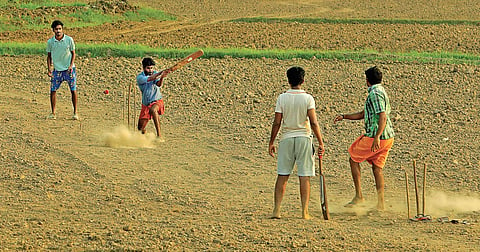Chennai
Track your sportstar’s health
Parents of young athletes have a major role to play when it comes to supporting their children to become sports champions.
Parents of young athletes have a major role to play when it comes to supporting their children to become sports champions. Many children start training at a very young age and so continuous monitoring by parents, in terms of the child’s sport and general health, is crucial. Here are a few things you need to pay attention to.
- Frequently ask your child about the colour of his/ her urine. Dark urine is a sign of dehydration. Appropriate fluid intake is crucial to sustain performance. Even the slightest degree of dehydration can have an impact on performance.
- Ensure your child develops a regular bowel habit. Irregular bowels can be the first sign or even the cause of imbalance in gut health. Health of the digestive tract is important to ensure proper digestion, absorption and utilisation of nutrients.
- The child requires planned pre-training and post-training snacks to support energy demands and recovery. The fluid quantity and timing during training should also be individually planned. Consult a sports nutritionist as they would be able to guide you with customised recommendations for your child.
- If you feel your child indulges in unhealthy snacking, it is important to teach them to make appropriate food choices that would help him improve as an athlete. This would require reducing intake of your child’s favourite foods that are highly processed/fried and also foods high in salt and sugar. Children are open and motivated to make changes that would help them perform better in their sport; our role will be to teach them the “why” before we teach them “don’t”. As parents our part should also be to set an example and reduce purchase of packed snacks. Provide children with more interesting home-made ones.
- Do not judge your child’s food intake based on other children his/her age. Requirements vary between individuals. In fact, your child’s nutrient requirements are different from other children’s requirements, regardless of being an athlete or otherwise. Allow the child to eat their preferred quantity. Forcing too much might make the child lose motivation. Ensure that your child’s meal plate is balanced with a variety of foods. Most importantly don’t miss out on the proteins (sources include milk and milk products, eggs, fish, chicken, meat, pulses, legumes, nuts and seeds).
- Pay attention to your child’s posture and correct the habits that can lead to posture imbalances or weakening of muscles (For example: slouching on the couch). Encourage the child to spend some time on basic stretches at home, because, often children tend to skip or do them with less attentiveness during training. Taking care of your muscles is important for proper recovery.
- Make sure that the child gets enough rest. Foods that can help improve quality of sleep include walnuts, almonds, kiwi, milk, banana and pumpkin seeds. Children who are into sports training do miss out on a lot of leisure and fun, compared to other children their age. This makes it very important for us to make the process of ensuring physical, mental and social wellbeing enjoyable for the child and not something he/she does out of force.
(The writer is a nutritionist at Sano Holistic Nutrition Clinic)

